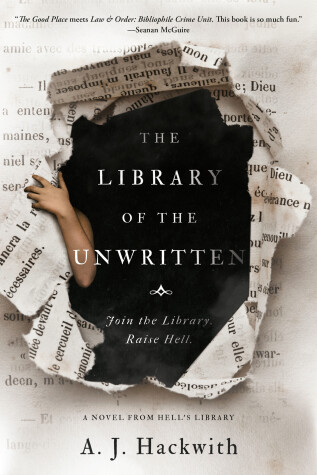A great tale for anyone who loves books, but especially for those who fancy themselves future authors, struggling authors, or really, anyone who'd embrace the title of author in any form.
Myself, I've never found the title of author appealing. My love of books is strictly that of the receiver of stories, and as such, some of the rhapsodic odes to unwritten stories was lost on me, though I connected with the idea of potentiality.
Regardless, once I got into the story, which admittedly took awhile, I was invested. I thoroughly appreciated the author's take on Christian theology and judgement, but had a hard time buying into the creative license she took with heaven on several different levels. There's a serious feminist vibe running throughout the narrative, which is fine, but for the record: God is no more a 'she' than God is a 'he'; God is Omni; God is all, and while it makes no material difference which gender pronoun one uses, the overt use of "she' has always felt petty to me. It was a small blip, but whenever it happened it yanked me out of the story, even if just for a second.
The author's grasp of the mythology of the underworld felt less formed, but only if you really stop to consider; the logic of the plotting cracks a bit around the edges if you stop to consider how she's got the bureaucracy of Hell set up. Don't think about it too much though and it works well enough.
The characters are well written, though Leto's story is obviously the one that is the most fully developed. This is the character the author thought most deeply about, or had enough life experience that bled through into his creation. Which is both unfortunate and haunting, though the result is a character the reader can care about and cheer for. To use Hackworth's logic, Leto is the character most likely to leave his book.
Overall, an engaging story, an adventure. There's a second book out next month that I'll happily read, and I hope this time around we'll spend more time in the library itself.
